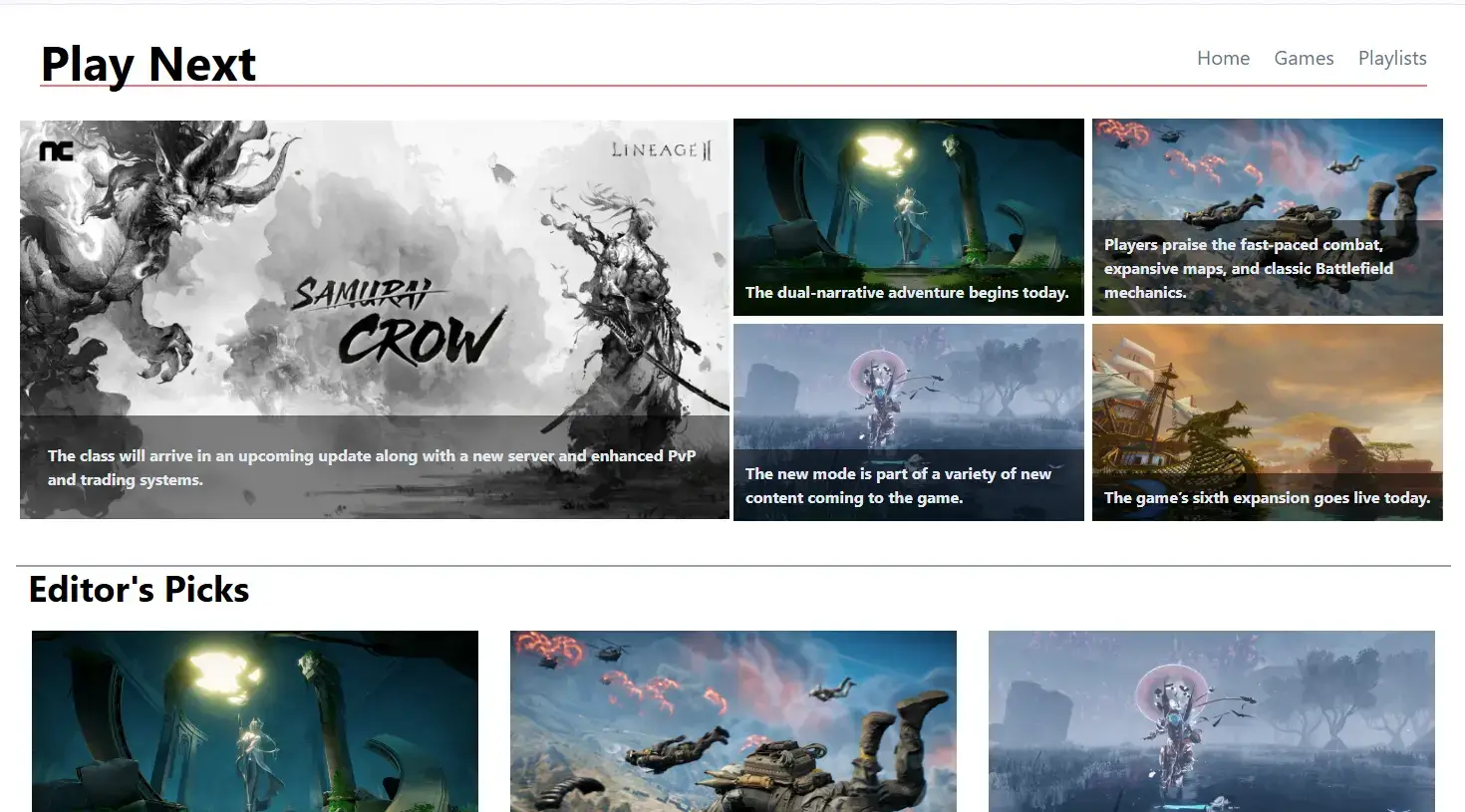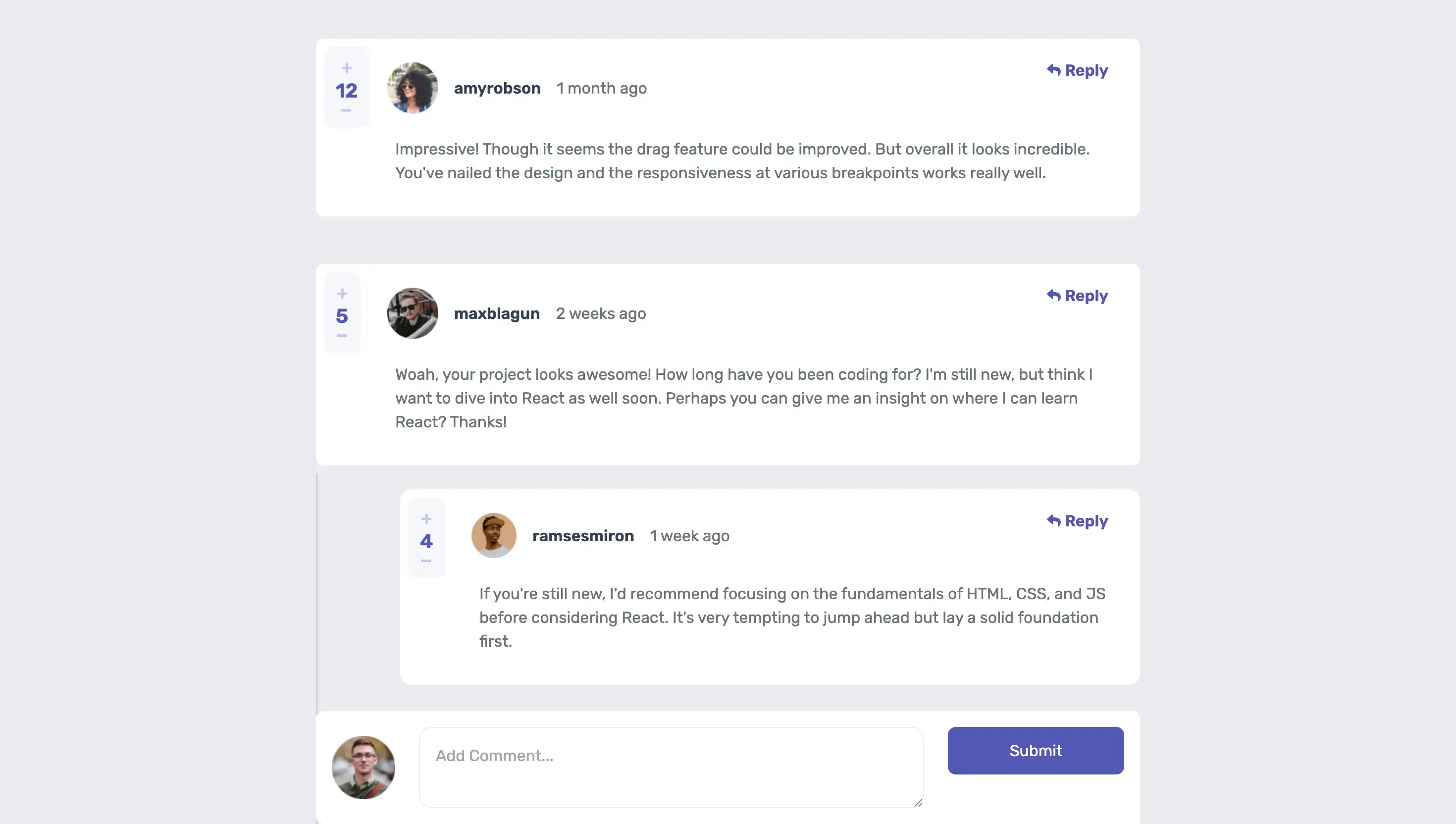
Escaping tutorial hell: How I became a frontend developer
From tutorial hell to professional frontend developer. Toba's journey took 2.5 years, a layoff, and a complete mindset shift about how to learn. Here's how he did it.
Table of contents
After graduating with a Computer Science degree, Toba avoided coding for four years. When he finally decided to become a frontend developer during COVID, he fell into the trap that catches thousands of aspiring developers: tutorial hell.
In this community spotlight, Toba shares how he escaped the endless cycle of watching tutorials, rebuilt his skills from the ground up, and used Frontend Mentor's challenges to bridge the gap between learning and real development work. He's now a professional frontend developer—here's how he got there.
My path into software development
I’ve always lived around computers. My curiosity started when I was a kid, but I never quite gave myself the push to break into software development. We’ve all read inspiring stories of people moving into tech from completely different backgrounds. My path is a little different.
My software development career is still in its early days—less than 5 years of experience—so I don’t have a dramatic, against-the-odds tale. But it’s mine, and, like your story is to you, I hope it still resonates.
As I write this, I’m in my third role as a front-end developer, after three years across two companies. Those experiences taught me a lot and, more importantly, clarified where I want to focus next and where I would like to take my career.
Why I didn't start coding after my Computer Science degree
I studied Computer Science at university, but even after graduating, I wasn’t sure where to focus. Database design? Testing? Hardware? I had no idea.
At university, I learned some Java. I didn’t love it, but I recognised the opportunity I had, so I threw myself into the work and made the most of it. By the time I graduated, though, I didn’t want to look at another line of code.
I started my career in systems administration. For four years, it felt right, but I couldn’t shake the sense that I wanted something more hands-on and technical. One day, while fixing a colleague’s PC, he asked how I knew what I was doing. I said I just enjoy working with computers. He replied, “It’s like you can speak their language.” That’s when the penny dropped: I could speak their language—and I wanted to become a software developer.
The decision to learn frontend development
How I started learning frontend development during COVID
Then COVID hit. Stuck indoors with extra time outside of remote work, I decided to relearn coding—this time with something I enjoyed: JavaScript. I worked through online courses and tutorials, not realising I was mostly copying rather than truly learning.
Escaping tutorial hell: My first interview wake-up call
In early 2021, I started applying for developer roles—countless applications, no luck—until a colleague and friend referred me for an interview. During that interview phase, that’s when it hit me: following tutorials without a clear plan hadn’t built real understanding. When asked to explain what each block of code did, it may as well have been written in another language. I was lost—and I knew I had to change my approach.
To my surprise, I got a call back for a coding test—the longest 90 minutes of my life. For the first time, I had to write code without a tutorial. It felt impossible.
A few days later, the company called again: they liked me, but my coding wasn’t quite where they needed it to be. So they offered one more chance—explain how JavaScript’s reduce works. I spent the next few days properly learning the method, writing my own examples, and testing edge cases. I needed this job, so I couldn’t afford to mess it up.
I nailed the follow-up and landed the role. But my journey into coding didn’t stop there…
The steep learning curve of junior development
Once I started the role, I faced challenge after challenge. I didn’t fully understand how useState worked, nor did I grasp the power of objects in functions, while hooks were simply beyond my current understanding; the list goes on. Coding sprints were incomplete and buggy. I felt useless. I did have two key assets: my drive and ambition.
I asked the CTO to mentor me and help me learn, so I could contribute to the team more effectively. But instead of him teaching me. I went away and taught myself. I just needed someone to help keep me on track and explain if there are better ways to do something. I took myself back to the absolute basics. What is a variable? What is a function? I wanted to build myself up from a solid foundation. Just as I was getting to grips with coding. I lost my job due to redundancies after just one short year of experience.
Redundancy after one year
Back to square one, I felt completely devastated. I knew my coding skills weren’t where they needed to be, and the one opportunity I had was gone. I now had to start the interview process all over again. On top of that, I needed a job to cover my mortgage and bills, but I also desperately needed time to improve my technical abilities.
Rebuilding my skills the right way
Taking a survival job while learning
After a few months, I landed another job that combined IT support with a small amount of software development. It wasn’t what I truly wanted, but I didn’t have many options at the time. What bothered me the most was the feeling that I wasn’t growing as a developer. I didn’t even have a technical manager to ask questions and learn from; I was on my own.
I knew that future interviews would come with higher expectations of my skills and experience—yet I wasn’t getting the opportunities to build either. I had to take control of my progress and do something about it. So in my spare time, I decided to build and learn. From the basics, without tutorial videos.
How to learn frontend development without tutorials: Building real projects
It was a slow start, but things gradually began to fall into place. I would console.log almost everything—I needed to visualise what was happening and understand the flow of data. This habit helped me truly grasp how JavaScript works under the hood, especially when it came to React.

(My first completed project: Play Next)
After completing my first few self-directed projects, I felt unstoppable. I was eager to take on more professional-looking builds—but suddenly, I hit a wall. I didn’t know what to create next. I searched online for ideas, but nothing clicked.
Then, one day, I came across a random post on X (Twitter) where someone shared a project they had built. It immediately caught my attention. They mentioned Frontend Mentor in the post, so I checked it out—and instantly, I knew I had found exactly what I’d been looking for.
Frontend Mentor was a game-changer. What impressed me most was the learning paths. They are organised paths created to fill knowledge gaps and solidify fundamentals. The platform introduced me to frontend development concepts like responsive design, CSS Grid, and React state management I had previously only scratched the surface of.

(My “Interactive comments section” project from Frontend Mentor)
Every time I log in, I am inspired, whether I’m tackling a new challenge or exploring how someone else approached a solution. It’s a goldmine for anyone serious about becoming a better developer.
After about two and a half years of consistent learning and growth, I felt ready. It was time to step back into the job market.
Key projects that defined my growth as a developer
I’ve never been the type to post online or showcase my projects, but I’m genuinely proud of what I’ve built through Frontend Mentor. Projects like the Multi-Step Form (stack: Next.js, TypeScript, and Tailwind CSS) and the Fylo Landing Page (stack: React, TypeScript, Tailwind, and Motion)—where I experimented with animations—were turning points for me. They weren’t just exercises; they were proof that I was becoming a real developer.
When I look back now, I’m proud of how far I’ve come. There was a time when I genuinely wasn’t sure if I could make it in software development. Even though I had a computer science degree and access to learning resources, I found it incredibly difficult to code without relying on tutorials. I struggled in my job, often feeling lost and unsure whether I was making any progress.
However, I kept returning to the basics. I slowed down, focused on understanding core concepts deeply, and allowed myself to learn at a steady pace. That made all the difference. Over time, I realised something powerful: your experiences compound. Every small problem solved, every concept understood, starts to snowball. Eventually, you find yourself doing things you once thought were beyond you.
What I wish I knew when learning to code
I’ve learned a lot of lessons over the years, but here are some that will hopefully help anyone just starting out:
- Don’t rush the fundamentals. Slowing down to learn the basics of JavaScript, data flow, and state management helped everything else make sense.
- Projects > tutorials. Tutorials are helpful, but real growth starts when you build something on your own. You’ll struggle more—but that struggle is where you learn the most.
- Consistency beats intensity. Small daily progress compounds massively over time.
- Feeling stuck is normal (even for professionals). Imposter syndrome never truly disappears; it just becomes quieter.
- Your knowledge compounds. Every challenge you overcome—no matter how small—builds a foundation for the next. One day, you’ll realise problems that once felt impossible are now second nature.
Where I am now and what's next
Currently, I am a frontend developer at MAV Systems based in the UK, and it has been a fantastic opportunity. I have created professional user interfaces that have attracted the attention of many companies and clients while further advancing my skills and knowledge.
Looking ahead, my goal is to continue refining my skills and growing into a highly capable frontend engineer. I want to contribute to building products that are not only functional but also improve people’s lives. I’m committed to deepening my understanding of modern frontend technologies, exploring performance optimisation, accessibility, design systems, and best practices, while also developing the mentorship skills needed to support other developers on their journeys.
Becoming a frontend developer: Key takeaway
If there’s one key lesson I’ve learned, it’s this: progress in software development is not a single breakthrough—it’s the result of consistent effort, curiosity, and resilience. There were times when I doubted whether I could ever succeed in this field. But by taking small steps every day and embracing a growth mindset, I transformed not just my technical abilities but my confidence in what I’m capable of achieving. The journey hasn’t been easy, but it’s been rewarding. The compound effect of steady learning is real, and if you stay committed, your future will always be greater than your past.
Take your skills to the next level
- AI-powered solution reviews
- 50+ portfolio-ready premium projects
- Professional Figma design files